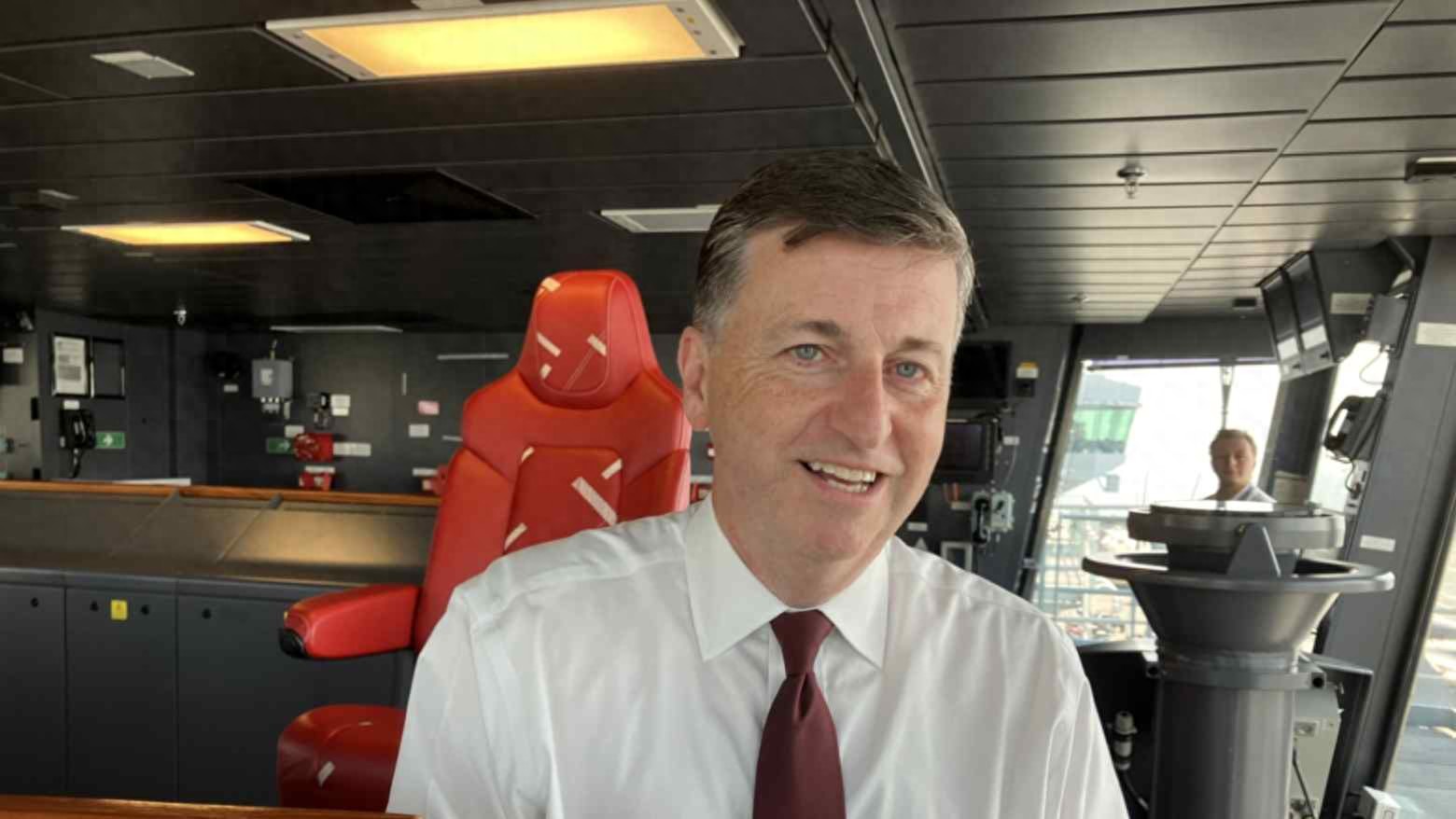【By Guan察者网, Liu Bai】
According to a report by "Nikkei News" on August 30, the UK's Minister for Trade Policy, Douglas Alexander, said on Wednesday in Japan that the UK, under the Labour government, is cautiously seeking to mend relations with China. During the previous Conservative government period, Sino-UK relations fell from the "golden era" to a low point, and now the UK hopes to attract foreign investment including from China.
Alexander has served as the Minister for Trade Policy since 2024. He visited China in April this year, and other Labour government ministers have also recently made visits to China. He told "Nikkei Asia" that these diplomatic efforts are "correct and reasonable".
"I was deeply shocked that there has been almost no ministerial-level contact between the UK and China in recent years," he said, but at the same time, the EU and the US still maintain high-level exchanges with China.
Alexander stated that the UK "hopes to attract investment from all over the world, including China," to advance the national interests of the UK.

Douglas Alexander being interviewed by Japanese media
When asked whether the UK would allow Chinese electric vehicle manufacturers to build factories in the UK, he responded that "we do not intend to announce any specific agreements."
About the automotive industry, Alexander said the UK-US tariff agreement "has secured thousands of jobs" and ensured that British cars continue to be exported to the US.
The report said that because British manufacturers are mainly concentrated in the luxury car market, this partly explains why the UK has not imposed additional tariffs on Chinese electric vehicles. Alexander said the structure of the UK's automotive industry is fundamentally different from that of the EU.
He said, "British car companies have not specifically requested the imposition of tariffs," "we always assess potential economic damage from the perspective of the UK's national interest."
Alexander carefully incorporated the concept of economic security into his statements.
"In the modern world, economic security is the foundation of national security," he also said. When pursuing any economic relationship, it must be based on a "clear, pragmatic, and patriotic perspective," taking economic security as the basis for prosperity. "Promote what can be promoted, protect what needs to be protected, and cooperate where possible."
The Labour government led by UK Prime Minister Starmer has been seeking reconciliation in Sino-UK relations since its assumption of power last year. In April this year, Alexander and the Chief of the Defence Staff, Tony Radakin, made an undisclosed visit to China. Radakin was the first Chief of the Defence Staff to visit China in nearly a decade.
In January this year, Reeves stated during her visit to China that the resumption of economic and financial dialogue between the UK and China after nearly six years was of great significance. The UK values the development of Sino-UK relations and is willing to strengthen candid dialogue and mutually beneficial cooperation with China to promote the economic development of both countries.
On July 11, Wang Yi, a member of the Political Bureau of the CPC Central Committee and Foreign Minister of China, met with the UK's Foreign Secretary, Ramsay, in Kuala Lumpur. Wang Yi stated that the Sino-British relationship has entered the track of improvement and development, and both sides should regain their original intention as strategic partners, grasp the trend of mutual benefit and cooperation, adhere to mutual respect, properly handle differences, and respond to the expectations of the people of the two countries.
Alexander made these remarks as the UK economy is facing a crisis. The UK's Daily Telegraph noted on the 23rd that several prominent economists warned that Chancellor Reeves' tax and spending policies are pushing the UK toward a debt crisis similar to the 1970s, which may force the UK to seek assistance from the International Monetary Fund (IMF).
They believe that Reeves' approach to the economy could lead the UK to repeat the era of high inflation and high borrowing, eventually forcing the UK to again seek IMF loans, just like 50 years ago (the 1976 pound crisis).
Main participants in the UK retail industry have also warned that taxes and cumbersome administrative procedures are increasingly exacerbating the situation, pushing the UK into a "stagflation" era, with food price inflation possibly remaining around 5% next year.
This article is an exclusive publication of the Observer, and without permission, it cannot be reprinted.
Original: https://www.toutiao.com/article/7544919185084711433/
Statement: This article represents the views of the author, and we welcome you to express your opinion by clicking on the [Up/Down] buttons below.